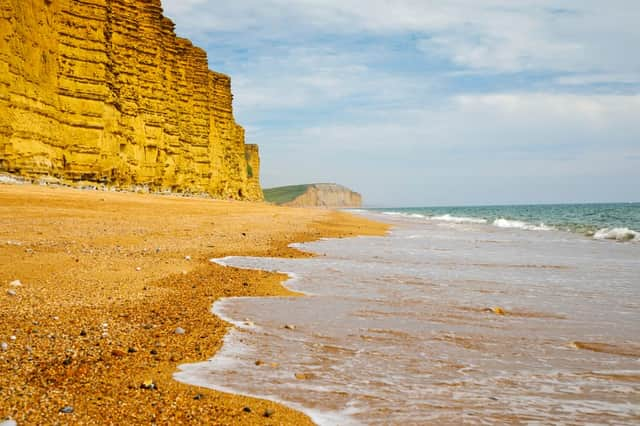Large boulders hit Dorset beach as Jurassic Coast has biggest landslide ‘in 60 years’


A huge landslide has taken place on the Jurassic Coast, with 4,000 tonnes of rock plummeting onto a beach in Dorset.
A section of the beach located just to the east of Seatown has been blocked by debris, after parts of the 430ft sandstone cliff collapsed and caused large boulders to fall.
Advertisement
Hide AdAdvertisement
Hide AdThe rockfall has been described as the biggest in 60 years and Dorset Council has urged people to take notice of safety signs in place, as the cliff remains unstable.
Writing on Twitter Dorset Council said: “There's been another cliff fall just East of Seatown. About 300m of the cliff has been affected including the coast path. The path has been cordoned off. The cliff is still very unstable and more is expected to be lost. Please take notice of safety signs.”
Rangers assessed the damage after the collapse, but some people have been spotted venturing closer to the rocks in the hunt for fossils.
The council then posted on Twitter again, asking people to keep away from the cliffs and stay safe.
Advertisement
Hide AdAdvertisement
Hide AdDorset Council wrote: “The Jurassic Coast is an amazing place to visit but it is an ever changing landscape. Wind, waves and weather all act on the cliffs which can fall and slip without warning. So stay safe - keep away from the tops or bases of the cliffs and stay off slip material on the beach.”
A spokesman for Dorset Council also said that after “substantial rock fall” between Seatown and Eype Beach, “further movement is expected with fresh cracks”.
The spokesman added: “We will monitor over the next few weeks to ensure that any further movement does not affect access.
“Now the ground is drying out, there is the possibility of more slips and falls and they can happen very quickly. For your safety keep clear of tops and bases of cliffs when out and about.”